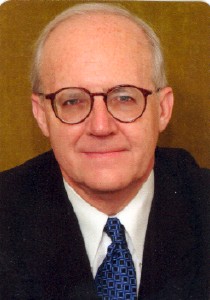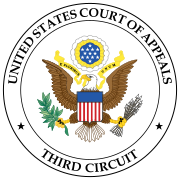
The Seventeenth Amendment to the United States Constitution established the direct election of United States senators in each state. The amendment supersedes Article I, §3, Clauses 1 and 2 of the Constitution, under which senators were elected by state legislatures. It also alters the procedure for filling vacancies in the Senate, allowing for state legislatures to permit their governors to make temporary appointments until a special election can be held.
Smith v. Allwright, 321 U.S. 649 (1944), was a landmark decision of the United States Supreme Court with regard to voting rights and, by extension, racial desegregation. It overturned the Texas state law that authorized parties to set their internal rules, including the use of white primaries. The court ruled that it was unconstitutional for the state to delegate its authority over elections to parties in order to allow discrimination to be practiced. This ruling affected all other states where the party used the white primary rule.
Board of Trustees of the University of Alabama v. Garrett, 531 U.S. 356 (2001), was a United States Supreme Court case about Congress's enforcement powers under the Fourteenth Amendment to the United States Constitution. The Supreme Court decided that Title I of the Americans with Disabilities Act was unconstitutional, insofar as it allowed states to be sued by private citizens for money damages.
City of Cleburne v. Cleburne Living Center, Inc., 473 U.S. 432 (1985), was a U.S. Supreme Court case involving discrimination against the intellectually disabled.
Ex parte Young, 209 U.S. 123 (1908), is a United States Supreme Court case that allows suits in federal courts for injunctions against officials acting on behalf of states of the union to proceed despite the State's sovereign immunity, when the State acted contrary to any federal law or contrary to the Constitution.

Danny Julián Boggs is an American attorney and a Senior United States Circuit Judge of the United States Court of Appeals for the Sixth Circuit. He was appointed to the court in 1986 and served as its Chief Judge from September 2003 to August 2009. Boggs was on the short list of President George W. Bush's candidates for the U.S. Supreme Court.
Virginia v. Black, 538 U.S. 343 (2003), is a First Amendment case decided in the Supreme Court of the United States. Three defendants were convicted in two separate cases of violating a Virginia statute against cross burning. In this case, the Court struck down that statute to the extent that it considered cross burning as prima facie evidence of intent to intimidate. Such a provision, the Court argued, blurs the distinction between proscribable "threats of intimidation" and the Ku Klux Klan's protected "messages of shared ideology." However, cross-burning can be a criminal offense if the intent to intimidate is proven. It was argued by former Solicitor General of Virginia, William Hurd.
Nixon v. Shrink Missouri Government PAC, 528 U.S. 377 (2000), was a case in which the Supreme Court of the United States held that their earlier decision in Buckley v. Valeo (1976), upholding federal limits on campaign contributions also applied to state limits on campaign contributions to state offices.
Intermediate scrutiny, in U.S. constitutional law, is the second level of deciding issues using judicial review. The other levels are typically referred to as rational basis review and strict scrutiny.
In American constitutional law, a statute is void for vagueness and unenforceable if it is too vague for the average citizen to understand, and a constitutionally-protected interest cannot tolerate permissible activity to be chilled within the range of the vagueness. There are several reasons a statute may be considered vague; in general, a statute might be void for vagueness when an average citizen cannot generally determine what persons are regulated, what conduct is prohibited, or what punishment may be imposed. For example, criminal laws which do not state explicitly and definitely what conduct is punishable are void for vagueness. A statute is also void for vagueness if a legislature's delegation of authority to judges and/or administrators is so extensive that it would lead to arbitrary prosecutions. Related to the "void for vagueness" concept is the "unconstitutional vagueness" concept. A law can be "void for vagueness" if it imposes on First Amendment freedom of speech, assembly, or religion.
Troxel v. Granville, 530 U.S. 57 (2000), is a case in which the Supreme Court of the United States, citing a constitutional right of parents to direct the upbringing of their children, struck down a Washington State law that allowed any third party to petition state courts for child visitation rights over parental objections.
Nixon v. Herndon, 273 U.S. 536 (1927), was a United States Supreme Court decision which struck down a 1923 Texas law forbidding blacks from voting in the Texas Democratic Party primary. Due to the limited amount of Republican Party activity in Texas at the time following the suppression of black voting through poll taxes, the Democratic Party primary was essentially the only competitive process and chance to choose candidates for the Senate, House of Representatives and state offices.
Anderson v. Celebrezze, 460 U.S. 780 (1983), was a United States Supreme Court case in which the Court held that Ohio's filing deadline for independent candidates was unconstitutional.
Williams v. Rhodes, 393 U.S. 23 (1968), was a case before the United States Supreme Court.
McIntyre v. Ohio Elections Commission, 514 U.S. 334 (1995), is a case in which the Supreme Court of the United States held that an Ohio statute prohibiting anonymous campaign literature is unconstitutional because it violates the First Amendment to the U.S. Constitution, which protects the freedom of speech. In a 7–2 decision authored by Justice John Paul Stevens, the Court found that the First Amendment protects the decision of an author to remain anonymous.
Sorrell v. IMS Health Inc., 564 U.S. 552 (2011), is a United States Supreme Court case in which the Court held that a Vermont statute that restricted the sale, disclosure, and use of records that revealed the prescribing practices of individual doctors violated the First Amendment.
Matal v. Tam, 582 U.S. ___ (2017) is a Supreme Court of the United States case that affirmed unanimously the judgment of the United States Court of Appeals for the Federal Circuit that the provisions of the Lanham Act prohibiting registration of trademarks that may "disparage" persons, institutions, beliefs, or national symbols with the United States Patent and Trademark Office violated the First Amendment. The case opened doors for identity reclamation, but halted the fight against the use of disparaging words that were derogatory.
Burson v. Freeman, 504 U.S. 191 (1992), was a United States Supreme Court case in which the Court held that a Tennessee law that restricted from political campaigning within 100 feet of a polling place did not violate the First Amendment.
Barr v. American Assn. of Political Consultants, Inc., 591 U.S. ___ (2020), was a United States Supreme Court case involving the use of robocalls made to cell phones, a practice that had been banned by the Telephone Consumer Protection Act of 1991 (TCPA), but which exemptions had been made by a 2015 amendment for government debt collection. The case was brought by the American Association of Political Consultants, an industry trade group, and others that desired to use robocalls to make political ads, challenging the exemption unconstitutionally favored debt collection speech over political speech. The Supreme Court, in a complex plurality decision, ruled on July 6, 2020, that the 2015 amendment to the TCPA did unconstitutionally favor debt collection speech over political speech and violated the First Amendment.



